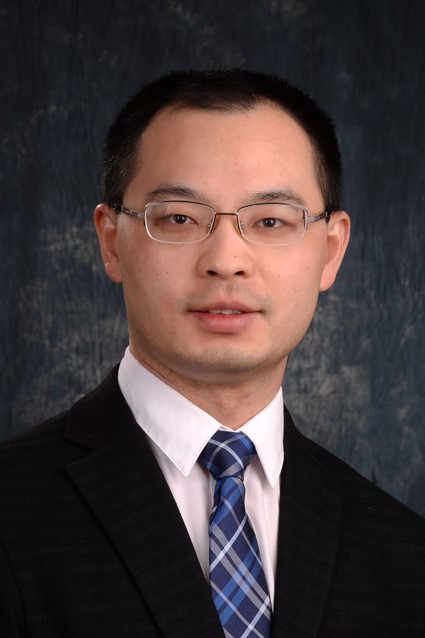Special Session I
Session I: Radio Frequency Resource Management and Control for Cognitive Radar Systems
Recently, remarkable advances in signal processing and intelligent antenna technology have enabled the developments of cognitive radar systems, which can perceive the environment according to the predicted prior information or online estimation and learning. One of the significant application backgrounds of cognitive radar systems is to enhance the resource usage efficiency by cooperatively managing their limited transmit resources, controlling radio frequency radiation, designing and optimizing transmit waveform, etc. Due to the severe electromagnetic environment, it is still an open issue to obtain better low probability of intercept performance for different radar systems in real scenarios. Despite having received huge attention from both academia and industry, many open problems are still to be addressed. This special session aims to bring together researchers from academia and industry to discuss the latest research in terms of techniques and applications of radio frequency resource management and control for cognitive radar systems.
Submission link: https://www.zmeeting.org/submission/ictce2025-specialsession1
Topics:
Potential topics of interest include but are not limited to:
- Resource management for target detection, tracking and localization
- Adaptive waveform optimization for cognitive radar systems
- Transmit parameter design in integrated radar and communication system
- Cooperative mission assignment and management in radar network
- Adaptive beamforming and nulling technique for cognitive radar systems
Organizers:
|

|
Assoc. Prof. Chenguang Shi, Nanjing University of Aeronautics and Astronautics, China
Chenguang Shi received the B.S. and Ph.D. degrees from the Nanjing University of Aeronautics and Astronautics (NUAA) in 2012 and 2017, respectively. He is currently an associate professor with the Key Laboratory of Radar Imaging and Microwave Photonics, NUAA, Ministry of Education. His main research interests include radar resource-aware management, low probability of intercept optimization, radar network signal processing, adaptive radar waveform design, and target tracking. He has published more than 50 scientific articles in refereed journals, such as IEEE Transactions on Signal Processing, IEEE Systems Journal, IEEE Sensors Journal, etc. He received the Best Poster Award in 2021 International Conference on Autonomous Unmanned Systems, the Best Paper Honorable Mentions in 2021 International Conference on Control, Automation and Information Sciences, and the Excellent Doctoral Dissertation Nomination Award from China Electronic Education Association in 2020, etc.
|
|

|
Assoc. Prof. Fei Wang, Nanjing University of Aeronautics and Astronautics, China
Fei Wang received the B. S. degree in power engineering from HoHai University in 1998, and the M.S. and the Ph.D. degrees in signal processing from Jilin University in 2003 and 2006, respectively; in 2011, he worked as a visiting scholar at Queens University of Belfast for one year funded by the China Scholarship Council; in 2017, he was sponsored by the 14th IBCAST International Conference to give a special lecture at the "Radar and Wireless Communication" sub-venue; he has successively presided over or undertaken Aeronautical Science Foundation of China, National Natural Science Foundation of China, National Defense Pre-search Program and National Defense Program (973 Program); he has won the first prize of Jilin Province Science and Technology Progress Award twice, and the second prize of National Defense Science and Technology Progress Award twice; he has published 20 papers included in SCI, authorized 8 national invention patents, 2 software copyrights, and co-published 4 monographs. |
|

|
Assoc. Prof. Zhenkai Zhang, Jiangsu University of Science and Technology, China
Zhenkai Zhang received the M.S. and Ph.D. degrees from the Jiangnan University and Nanjing University of Aeronautics and Astronautics (NUAA) in 2007 and 2013, respectively. He is currently an associate professor of Jiangsu University of Science and Technology. His main research interests include radar signal processing, radar and communication integration, radar resource management, and target tracking. He has published more than 50 scientific articles in refereed journals, such as Signal Processing, IET radar sonar and navigation, and presided over two projects of National Natural Science Foundation of China. He was entitled “The backbone teacher of Qinglan Project in Jiangsu Province” in 2016. Then he was selected into the 333 high level talent training project of Jiangsu Province in 2021. |